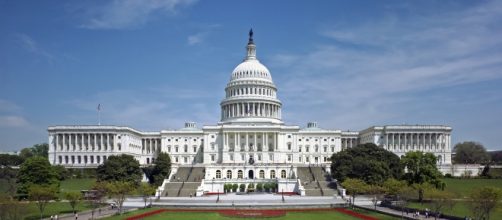Several grassroots limited government organizations have sent a letter to a key committee chairman in Congress asking that language banning internet-based gaming not be included in the spending bill pending in the “lame-duck” session. The internet gaming ban legislation is similar policy to the language of the Restoration of America's Wire Act (RAWA) legislation that failed to advance in Congress earlier this year. The groups sent the letter to Rep. John Culberson, Chairman of the House Appropriations Subcommittee on Commerce, Justice, and Science, the committee where the spending bill will be heard.
The letter states, “We, the following free-market, limited-government, and freedom-oriented organizations are asking you to oppose language supporting any kind of ban or federal limitation on internet gaming that might be included in a 'lame-duck' spending bill.”
Inclusion of RAWA in Spending Bill
The letter highlighted the rejection of earmarks in the spending bill by House Speaker Paul Ryan, and how including legislation like RAWA in the spending bill is inconsistent with reforming the process. It also mentioned RAWA, stating, “...we believe that an effort is underway to reward Republican donors by passing the Restore America's Wire Act (RAWA) and creating a de facto ban on Internet gambling.”
In a letter to Speaker Ryan, Rep.
Mick Mulvaney requested that Congress vote, during the lame-duck session, on a clean continuing resolution, free of legislative add-ons such as the RAWA legislation. Members of Congress often use the lame-duck spending bill to sneak in legislation, often included at the bequest of special interest groups or big money donors, that has not otherwise gone through the normal legislative process of committee hearings, markups, and Congressional debate.
Rep. Jason Chaffetz (R-UT), who has received several donations from Las Vegas casino owner Sheldon Adelson, sponsored RAWA and held a hearing for it before the House Oversight Committee, where he's chairman, earlier this year. Adelson strongly supports RAWA because of the perceived threat to his brick-and-mortar casinos from online gambling being legalized and regulated in some states.
RAWA Failed in Congress
After the hearing on RAWA before the House Oversight Committee, the bill failed to gain any additional support from members of Congress. It was clear that a federal ban on state-based Internet gambling violated the Tenth Amendment, and giving Congress such authority also endangers Second Amendment rights if Congress were to also use it to prohibit states from allowing ammunition and firearms sales online. Most Republican members as well as Democrats seemed to oppose RAWA.
The letter from the groups further highlighted problems with circumventing Congressional procedure, stating “Furthermore, the consequence of RAWA legislation being buried in a spending bill sets a dangerous precedent for any party to use such bills in the future to circumvent the Constitution’s protections in a variety of areas, including the 2nd Amendment, which increases the possibility of further federal intervention in firearm and ammunition sales.”
Groups Opposed to RAWA
The letter opposing RAWA was signed by Andrew Langer, President of the Institute for Liberty, David Williams, President of the Taxpayers Protection Alliance, Andrew F.
Quinlan, President of the Center for Freedom and Prosperity, Michelle Minton, Fellow at the Competitive Enterprise Institute, Norm Singleton, Senior Vice President of the Campaign for Liberty, Seton Motley, President of Less Government, and George S. Scoville, III, who is a Constitutional Scholar and Online Commentator.

